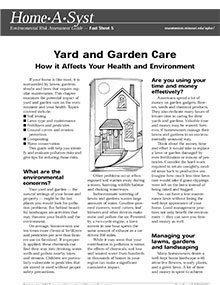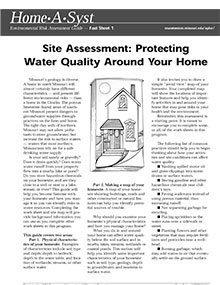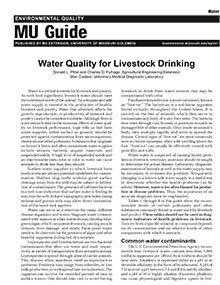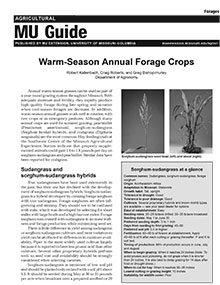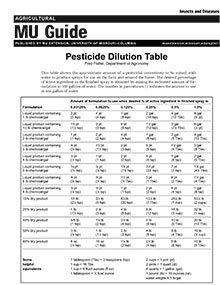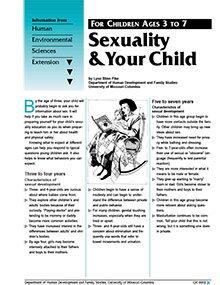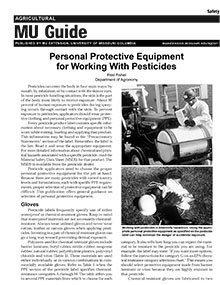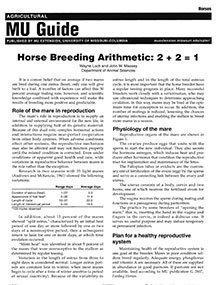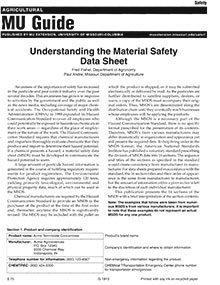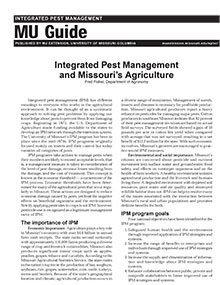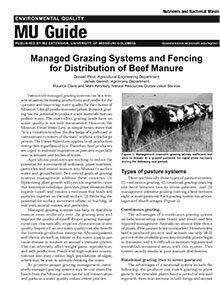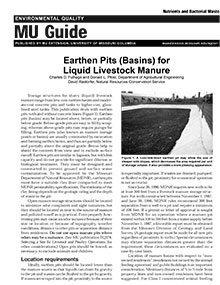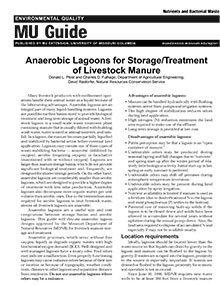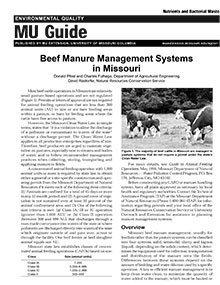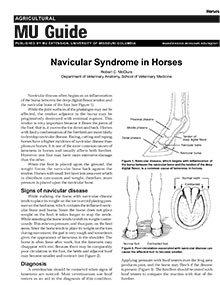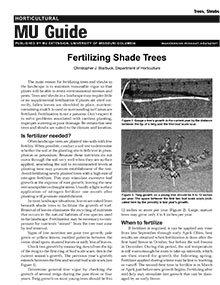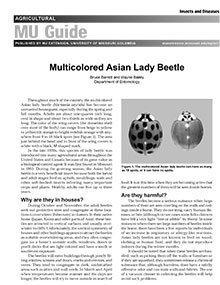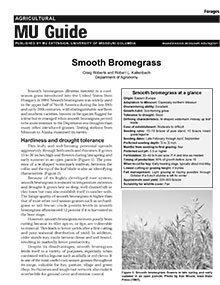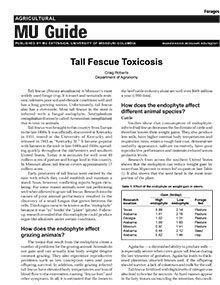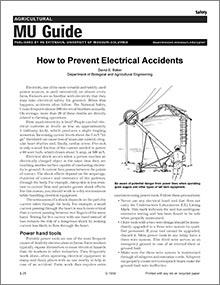Yard and Garden Care: How It Affects Your Health and Environment (Fact Sheet)
New
Fact sheet 5
Work sheet 5
If your home is like most, it is surrounded by lawns, gardens, shrubs and trees that require regular maintenance. This chapter examines the potential impact of yard and garden care on the environment and your health. Topics covered include:
Site Assessment: Protecting Water Quality Around Your Home (Fact Sheet)
New
Fact sheet 1
Work sheet 1
How to Manage and Control Storm Water Runoff (Work Sheet)
New
Work sheet 2
Fact sheet 2
Household Wastewater: Septic Systems and Other Treatment Methods (Fact Sheet)
New
Visit our website here to view our Household Wastewater: Septic Systems and Other Treatment Methods (Fact Sheet).
Water Quality for Livestock Drinking
New
Water is a critical nutrient for livestock and poultry. Learn how to provide an adequate and safe water supply for livestock and poultry in this guide.
Warm-Season Annual Forage Crops
Revised
Annual warm-season grasses can be used as part of a year-round grazing system in Missouri. Visit our site to learn about Warm-Season Annual Forage Crops.
Pesticide Dilution Table
Reviewed
Sexuality and Your Child: For Children Ages 3 to 7
Reviewed
University of Missouri Department of Human Development and Family Studies. Providing sex education to their kids can be difficult for parents. Visit our site to view our Sexuality and Your Child: For Children Ages 3 to 7 resource.
Horse Breeding Arithmetic: 2 + 2 = 1
Reviewed
Managed Grazing Systems and Fencing for Distribution of Beef
New
Learn about the layout, design and advantages of continuous, rotational and management-intensive grazing. Paddocks, fences, and how to calculate your grass production and needs are also covered in this University of Missouri Extension guide.
Managing Manure on Alfalfa Hay
New
Alfalfa is a high-quality, high-yielding, cool-season forage that can be profitably marketed as hay. Alfalfa is a desirable crop for manure applications because:
Navicular Disease in Horses
Revised
Fertilizing Shade Trees
Reviewed
The main reason for fertilizing shade trees is to maintain vigor so that plants will be able to resist environmental stresses & pests. Visit our site.
Smooth Bromegrass
New
Smooth bromegrass makes for excellent quality hay. Visit our website today to learn more about smooth bromegrass.
Tall Fescue Toxicosis
New
Tall fescue is Missouri's most widely used forage crop. Visit our site to learn about Tall Fescue Toxicosis.
How to Prevent Electrical Accidents
Reviewed
Electricity, one of the most versatile and widely used power sources, is used extensively on almost every farm. Farmers are so familiar with electricity that they may take electrical safety for granted. When this happens, accidents often follow. Get tips for electrical safety in this guide.
